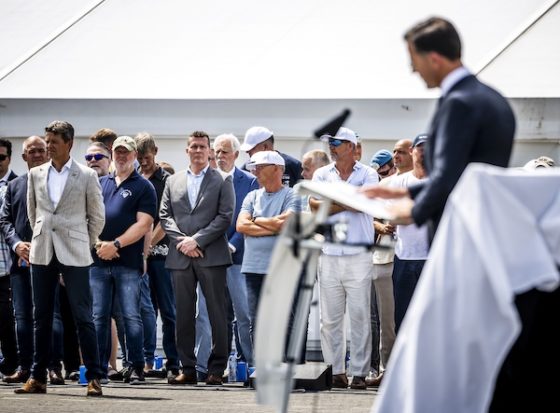Prime minister apologies to Dutchbat soldiers for lack of support over Srebrenica


As expected, prime minister Mark Rutte on Saturday officially apologised to Dutch soldiers working under the auspices of the UN during the Bosnian war who were sent on an impossible mission to protect the so-called UN ‘safe haven’ of Srebrenica.
The enclave was overrun by Bosnian Serbs in 1995, when some 8,000 Muslim men and boys were executed over the course of five July days.
Prime minister Mark Rutte met Dutchbat III veterans at ceremony at the Oranjekazerne military barracks in Schaarsbergen and acknowledged the unit’s unfair treatment and expressed his appreciation for the soldiers.
‘Only one party was and is guilty of the fall of the enclave of Srebrenica and the genocide that followed: the Bosnian Serbs and not Dutchbat III,’ Rutte said.
‘Almost 27 years later, some words have still not been spoken. It is true… that the Srebrenica mission took place under a UN mandate. But that does not detract from the special responsibility of the Dutch state for the circumstances under which you were sent out, for your reception after your return and for the lack of support when Dutchbat III was wrongly accused.
Today, on behalf of the Dutch government, I apologize to all the women and men of Dutchbat III… With the greatest possible appreciation and respect for the way in which Dutchbat III always tried to do the right thing under difficult circumstances, even when that was no longer possible.’
Blame
Dutch soldiers and researchers from NIOD, the Institute for War, Holocaust and Genocide Studies, have said that the 300 so-called blue helmets were unfairly blamed for failing to protect the enclave and the thousands of Bosnians who had taken refuge there.
A 2002 NIOD-commissioned report that found Dutch troops were sent on an impossible mission with inadequate preparation and leadership led to the fall of the Dutch government days later.
It also emerged in 2015 that the allies during the Yugoslavian civil war decided to cancel airstrikes on Serbian targets without telling the Dutch, possibly causing the fall of Srebrenica.
Change
Olaf Nijeboer from the Dutchbat III association said after the ceremony that he welcomed the apology. ‘I feel as if something has really changed,’ he said. ‘It is being recognized what we missed and that because we are valued as people we can go a step further and reach closure.’
Nijeboer told NOS that he believed the victims of the genocide need recognition just as much as the soldiers.
In 2019, the Dutch cabinet acknowledged its partial liability for the death of 350 men and boys during the Srebrenica massacre, following a court hearing.
The Dutch supreme court said then that Dutch UN troops were wrong to send 350 men and boys out of the Dutch military compound near Srebrenica in 1995 but that the Dutch state is just 10% responsible for their deaths at the hands of Bosnian Serbs.
Thank you for donating to DutchNews.nl.
We could not provide the Dutch News service, and keep it free of charge, without the generous support of our readers. Your donations allow us to report on issues you tell us matter, and provide you with a summary of the most important Dutch news each day.
Make a donation